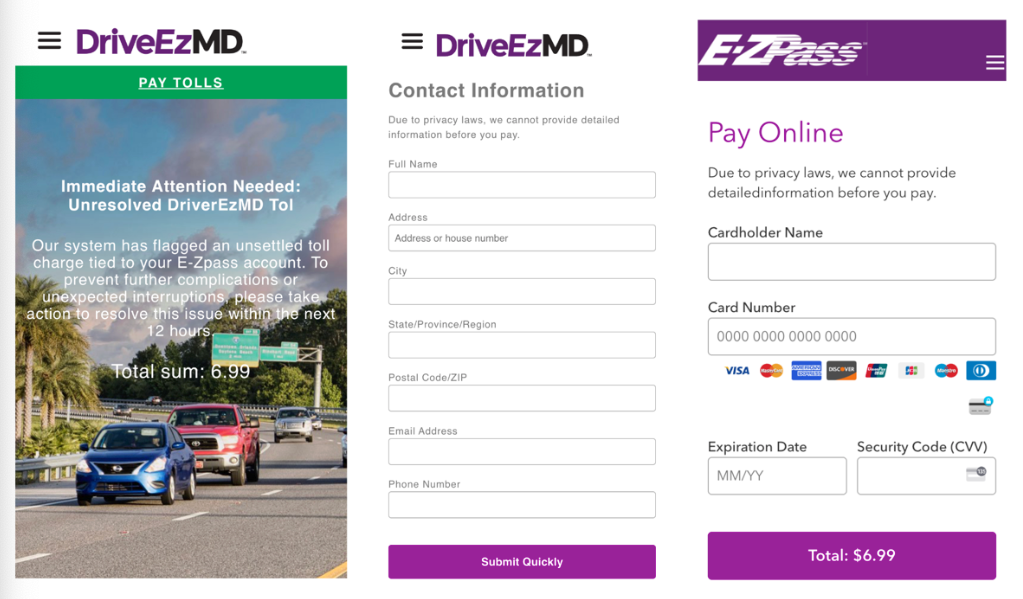Chinese criminal gangs have made more than $1 billion over the last three years using an elaborate scam involving phony text messages, fake government fees, stolen identities, and world-spanning mobile payment technology, according to the Department of Homeland Security.
As part of these scams, the groups use remotely operated “SIM farms,” located anywhere from auto shops to shared office spaces, to send out thousands of text messages to unsuspecting Americans, who get messages often warning them of some kind of unpaid government toll or fine.
“One person in a room with a SIM farm can send out the number of text messages that 1,000 phone numbers could send out,” Adam Parks, an assistant special agent in charge at Homeland Security Investigations, told The Wall Street Journal.
These texts send mobile phone users to sham websites that allow scammers to track keystrokes, passwords and financial information that victims input.
From there, the criminal groups install the stolen information on Google and Apple wallets in Asia then link these wallets back to the mobile phones of hired out gig workers in the U.S.

These workers use the fraudulent info to purchase gift cards, iPhones, and other valuable goods that are then shipped to China, according to experts.
Officials across the U.S. in Florida, Massachusetts, Texas, Colorado, California, Minnesota, and Washington, D.C., have warned residents about variants on this scam, which is sometimes called smishing, a portmanteau of SMS message and phishing.
“Residents should ignore these texts and immediately file a complaint with the FTC,” District of Columbia Attorney General Brian Schwalb warned in May.
“We have no idea who’s behind this,” Jennifer Givner, a spokesperson for the New York State Thruway Authority, told NBC News in March amid a flood in smishing scams pretending users owed money to the E-ZPass toll system. “We just know it keeps coming and it keeps changing every few days.”

Last year, nearly 60,000 filed complaints with the FBI about text-based toll scams.
Researchers told the WSJ they tracked roughly 330,000 such toll scams in a single day last month at a rate three times of what was seen in January of 2024.
The scheme has become so well-established that criminal groups sell pre-packaged kits on Telegram of hardware to carry out these cybercrimes.
Mobile users are warned not to respond to solicitations from unfamiliar numbers or enter payment details into unofficial government websites.

.jpeg)























.jpeg)














 English (US) ·
English (US) ·